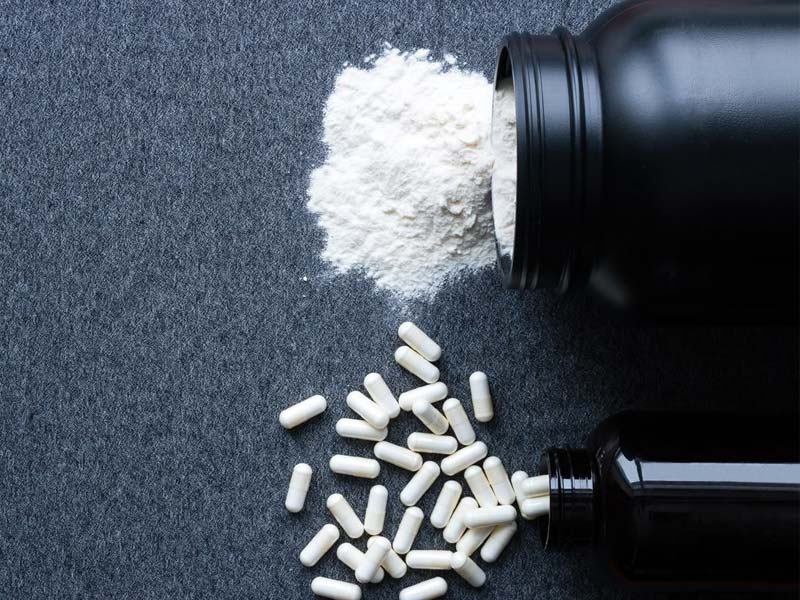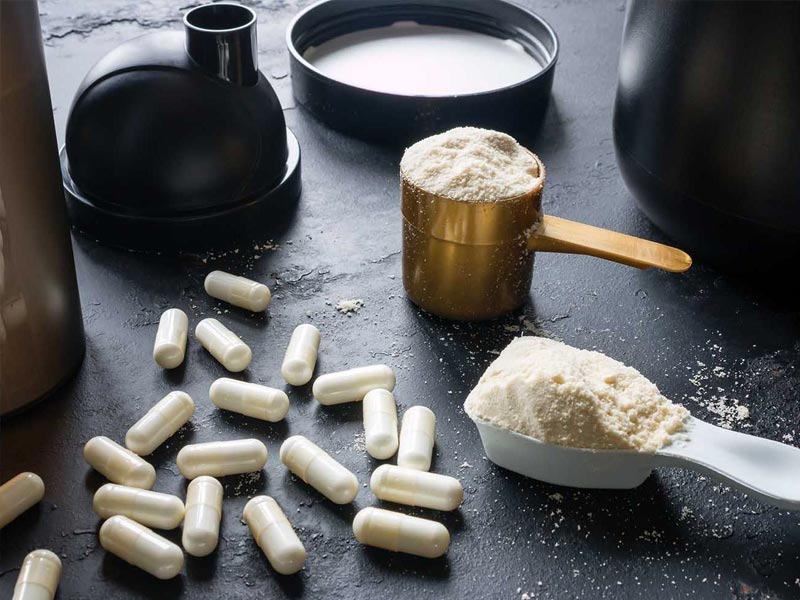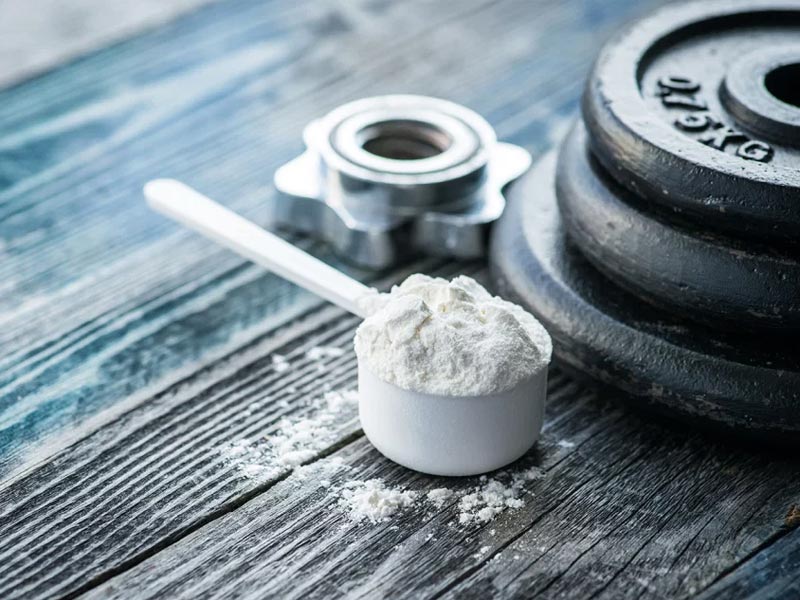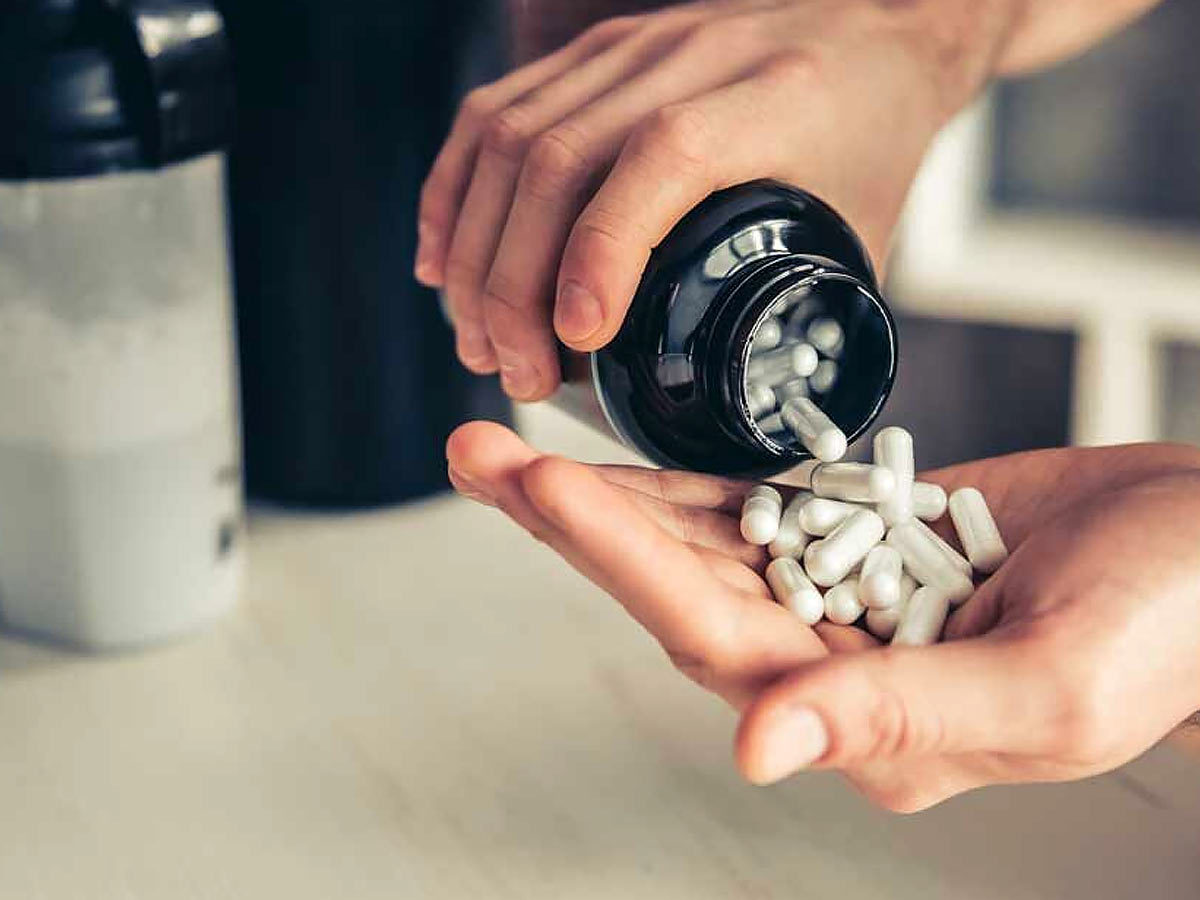Creatine is the new hot topic of discussion among fitness enthusiasts and nutrition experts. After Whey Protein, Creatine is the second most popular and sought supplement among bodybuilders and fitness enthusiasts. As things become popular, there come agreements and disagreements. Some say that it is totally safe and healthy to consume creatine, while others argue it is not safe for consumption.
So what is Creatine?

Creatine is an organic compound that is found in vertebrates. It aids the recycling of adenosine triphosphate, the cell’s energy currency in muscle and brain tissues.
In simpler terms, Creatine is an organic acid that supplies energy to the cells and helps the body produce energy rapidly.
Is Creatine Safe?
A piece of negative news about Creatine that has traveled the fastest is that it affects your kidneys. Despite all the negative campaigns, creatine is the top sports performance supplement available in the market. There have been enough studies and research to prove that creatine is safe.
Well, this doesn’t mean that creatine doesn’t have any side effects. Some of the common side effects of creatine consumption include
- Liver Damage
- Kidney Stones
- Bloating
- Weight Gain
- Digestion Problems
- Rhabdomyolysis
- Dehydration
Also Read, Whey Protein: Benefits, Types, Myths, and Side Effects
But are these side effects real?

These side effects are generally listed by people who claim that creatine is an anabolic steroid. The claim is entirely incorrect. Creatine has been labeled safe by the International Society of Sports Nutrition. No adverse side effects have been recorded after the use of creatine by athletes. However, there are some exceptions, but those exist only in people with some other illnesses or diseases.
In fact, creatine has been used to treat various diseases and health problems, including neuromuscular disorders, concussions, and even disease.
Top Benefits of Creatine
Improves Exercise Performance:
Creatine is known to improve high-intensity workout performance. Athletes and fitness enthusiasts consume creatine as a pre-workout supplement to improve their importance. It not just improves performance but also increases strength and helps in increasing muscle mass. Creatine also improves muscle endurance, allowing the athletes to work out for a longer period. Apart from the physical benefits of creatine also improves brain performance.

Producing More Energy:
Creatine also helps muscle cells produce more energy. The supplement does so by increasing muscles’ phosphocreatine stores. Phosphocreatine promotes the formation of adenosine triphosphate, the molecule used by cells for deriving energy. When we work out, adenosine triphosphate or ATP breaks down to produce energy. What ATP does is increase the phosphocreatine stores to produce more ATP energy.
Fast Muscle Growth:
Protein is the most important supplement for proper muscle growth, but creatine is no less. Creatine is among the most effective supplements for muscle growth. Creatine is proven to increase muscle size and lean body weight. The use of creatine is also helpful in supporting muscle fiber growth by boosting workout performance. Creatine effectively increases both short- and long-term muscle mass growth. When used along with Whey protein, Creatine is a really effective muscle-building supplement.
Fighting Neurological Disease:
It is no secret now that creatine is used to treat several diseases and disorders. One key benefit of creatine is that it helps in fighting neurological diseases. A common cause that leads to several neurological diseases is the reduction of phosphocreatine in the brain. What creatine does is boost the phosphocreatine levels in the brain, making the fight against neurological diseases easier.
Cutting Fatigue and Tiredness:
One key factor that impacts the workout performance is fatigue or tiredness caused by other physical activities or previous exercises. Creatine not just helps in fighting fatigue. It reduces dizziness significantly. Those working out after taking creatine are highly unlikely to experience fatigue compared to those who haven’t. This is what helps you work out for a longer period and get better results.
May Help in Dealing With Diabetes:
Several studies show that creatine may help lower blood sugar levels. Creatine does so by increasing the function of glucose transporter type 4. It is the molecule responsible for bringing blood sugar into the muscles. However, more research is required to ascertain whether creatine can help in fighting diabetes. But it does help in keeping a check on the blood sugar levels.

























